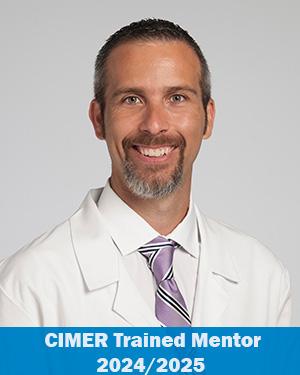Research News
01/11/2024
Global Parkinson’s disease genetics collaboration identifies new genes, variants in pursuit of more inclusive treatments
Huge multi-site collaboration identifies novel gene variants in global populations, providing more options for Parkinson’s disease treatment research.

Pictured: Members of ASAP-GP2 met in Copenhagen last summer to discuss the first major findings of their cross-cohort study.
Sixteen research centers and companies across the globe, including Cleveland Clinic and 23andMe have published results from largest, most genetically diverse study on the genetic causes of Parkinson's disease to date. Collaborators under the Aligning Science Across Parkinson's Global Parkinson's Genetics Program (ASAP-GP2) published a study in Nature Genetics that used data from almost 50,000 patients with Parkinson's disease from European, East Asian, Latino and African descent.
The study identified 78 risk loci (regions in the genome), including 12 novel loci that contain about 25 genes potentially associated with the disease. The results also improved understanding of 23 already known loci by narrowing down specific variants in these regions.
The results demonstrate how collaborating on inclusive, global research advances inclusivity in healthcare. Although some progress has been made in identifying genetic variants that contribute to Parkinson's disease, most of the research has been performed in western European populations.
"Studying diverse populations improves healthcare research for everyone," explains Cleveland Clinic's Ignacio Mata, PhD, co-corresponding author. "If the same variant is associated with Parkinson's disease across people of diverse ancestry living in different environments, we can imagine that the association is less likely to be random."
The genetic basis of Parkinson's disease is highly complex; variation in many genes can cause the neural degradation associated with the disease and only some of these genes are related. Lack of genetic diversity in research data makes it more difficult to understand the role of these genes in underrepresented populations, increasing health disparities and limiting potential treatment options.
This collaboration formed out of the Global Parkinson's Genetics Program (GP2), an international research collaboration managed by the Michael J. Fox Foundation and funded by Aligning Science Across Parkinson's. GP2 connects Parkinson's disease research across the globe and supports recruitment of and data collection from diverse research participants, provides genetic studies for free and shares all the data with the scientific community. Dr. Mata serves on the steering committee for the group, which spans over 100 research sites across all six populated continents of the globe and co-leads its underrepresented working group.
"Due to the limitations of these types of genetic studies, when people work on their own cohorts, they tend to move the field forward slowly, through small discoveries," says Dr. Mata, "When we bring people together and share our resources, skills and training as a team, we move discovery forward at a much faster rate. This is particularly important for those working with population who historically have been underrepresented and in many cases are underserved."
Over the years, GP2 also teamed up with 23andMe, a company that provides genetic testing at home. 23andMe has offered its customers the option to contribute their genetic data to Parkinson's disease research since 2009. The company has large cohorts of individuals with African, East Asian and Latin American ancestry.
In total the study analyzed data from 49,049 individuals with Parkinson's disease, 18,618 individuals whose immediate relatives had the disease and 2,458,063 neurologically healthy controls. What they found was staggering.
"When we saw the combined results of our studies we were blown away," says Dr. Mata. "We found 12 new loci to study and were able to narrow down to one to five specific variants in 23 loci that we already knew about. Identifying specific variants is crucial to providing the right targets for functional studies and ultimately proving whether a gene has a role in neurodegeneration."
Identifying variants is also crucial in developing medications to block the neurodegenerative process, he added. GP2 and its collaborators will investigate the genetic variants uncovered in their study with the goal of finding druggable targets. They also are working to add more data from other populations to the study.
"This project is proof that collaborating on large-scale genetically diverse studies advances the field at a much faster rate," Dr. Mata says. "We are committing to recruiting even more individuals of non-European ancestry to increase the genetic diversity of future studies. This is the future of genetic research."
This study was funded by Aligning Science Across Parkinson's and managed by the Michael J. Fox Foundation. It is the result of a close collaboration between the following research centers:
Laboratory of Neurogenetics, National Institute on Aging, National Institutes of Health, Bethesda, MD, USA.
Preventive Neurology Unit, Centre for Prevention Diagnosis and Detection, Wolfson Institute of Population Health, Queen Mary University of London, London, UK.
Data Tecnica International, Washington, DC, USA.
Center for Alzheimer's and Related Dementias (CARD), National Institute on Aging and National Institute of Neurological Disorders and Stroke, National Institutes of Health, Bethesda, MD, USA.
Neurogenetics Research Center, Instituto Nacional de Ciencias Neurológicas, Lima, Peru.
Institute for Genome Sciences, University of Maryland, Baltimore, MD, USA.
Lee Kong Chian School of Medicine, Nanyang Technological University Singapore, Singapore, Singapore.
Genome Institute of Singapore, Agency for Science, Technology and Research, A*STAR, Singapore, Singapore.
23andMe, Inc., Sunnyvale, CA, USA.
Pharmaceutical Sciences and Pharmacogenomics, UCSF, San Francisco, CA, USA.
Department of Neurology and Weill Institute for Neurosciences, University of California, San Francisco, San Francisco, CA, USA.
Memory and Aging Center, UCSF, San Francisco, CA, USA.
Department of Clinical and Movement Neurosciences, UCL Queen Square Institute of Neurology, London, UK.
UCL Movement Disorders Centre, University College London, London, UK.
Department of Neurology, National Neuroscience Institute, Duke NUS Medical School, Singapore, Singapore.
Genomic Medicine, Lerner Research Institute, Cleveland Clinic Foundation, Cleveland, OH, USA.
Featured Experts
News Category
Related News
Research areas
Want To Support Ground-Breaking Research at Cleveland Clinic?
Discover how you can help Cleveland Clinic save lives and continue to lead the transformation of healthcare.
Give to Cleveland Clinic